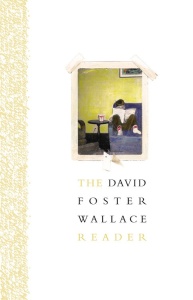 Photograph: Samantha Stock
Photograph: Samantha Stock
Paul Bloom makes a persuasive argument in the Boston Review about the dangers of empathy as a guide for making moral decisions. He begins definitionally: there is a difference between what is sometimes called “cognitive empathy,” the capacity to understand the thoughts and emotions of others, and “emotional empathy,” the capacity to feel what others feel. He’s referring to emotional empathy.
Everyone seems to think empathy is an unabashedly good thing. Bloom says no.
First, “Strong inclination toward empathy comes with [individual] costs.”
Individuals scoring high in unmitigated communion report asymmetrical relationships, where they support others but don’t get support themselves. They also are more prone to suffer depression and anxiety. Working from a different literature on “pathological altruism,” Barbara Oakley notes in Cold-Blooded Kindness (2011), “It’s surprising how many diseases and syndromes commonly seen in women seem to be related to women’s generally stronger empathy for and focus on others.”
Moreover, an individual who’s less empathetic may be a better professional in certain contexts. Bloom writes that in one-on-one interactions with doctors, we seek them to be cool, calm, and collected — not necessarily empathetic.
More broadly, empathy distorts wise policy making and philanthropy. Some think apathy makes us better altruists:
“the empathy-altruism hypothesis” is when you empathize with others, you are more likely to help them. In general, empathy serves to dissolve the boundaries between one person and another; it is a force against selfishness and indifference.
It is easy to see, then, how empathy can be a moral good, and it has many champions. Obama talks frequently about empathy; witness his recent claim, after his first meeting with Pope Francis, that “it’s the lack of empathy that makes it very easy for us to plunge into wars. It’s the lack of empathy that allows us to ignore the homeless on the streets.”
And yet:
Empathy is biased; we are more prone to feel empathy for attractive people and for those who look like us or share our ethnic or national background. And empathy is narrow; it connects us to particular individuals, real or imagined, but is insensitive to numerical differences and statistical data. As Mother Teresa put it, “If I look at the mass I will never act. If I look at the one, I will.” Laboratory studies find that we really do care more about the one than about the mass, so long as we have personal information about the one.
In light of these features, our public decisions will be fairer and more moral once we put empathy aside. Our policies are improved when we appreciate that a hundred deaths are worse than one, even if we know the name of the one, and when we acknowledge that the life of someone in a faraway country is worth as much as the life a neighbor, even if our emotions pull us in a different direction. Without empathy, we are better able to grasp the importance of vaccinating children and responding to climate change. These acts impose costs on real people in the here and now for the sake of abstract future benefits, so tackling them may require overriding empathetic responses that favor the comfort and well being of individuals today. We can rethink humanitarian aid and the criminal justice system, choosing to draw on a reasoned, even counter-empathetic, analysis of moral obligation and likely consequences.
The best way to think about empathy, says Bloom, is how we think about anger: we don’t want none of it (anger protects us and can spur positive moral action) but we don’t want too much of it (we want anger to be subservient to our rational mind). He says: “If we were all constituted in this way, if we could all put anger in its place, ours would be a kinder and better world. That is how we should think about empathy too.”
There are various responses to the essay by people like Peter Singer, Sam Harris, and others, at the same link above.
(Hat tip: Tyler Cowen)

